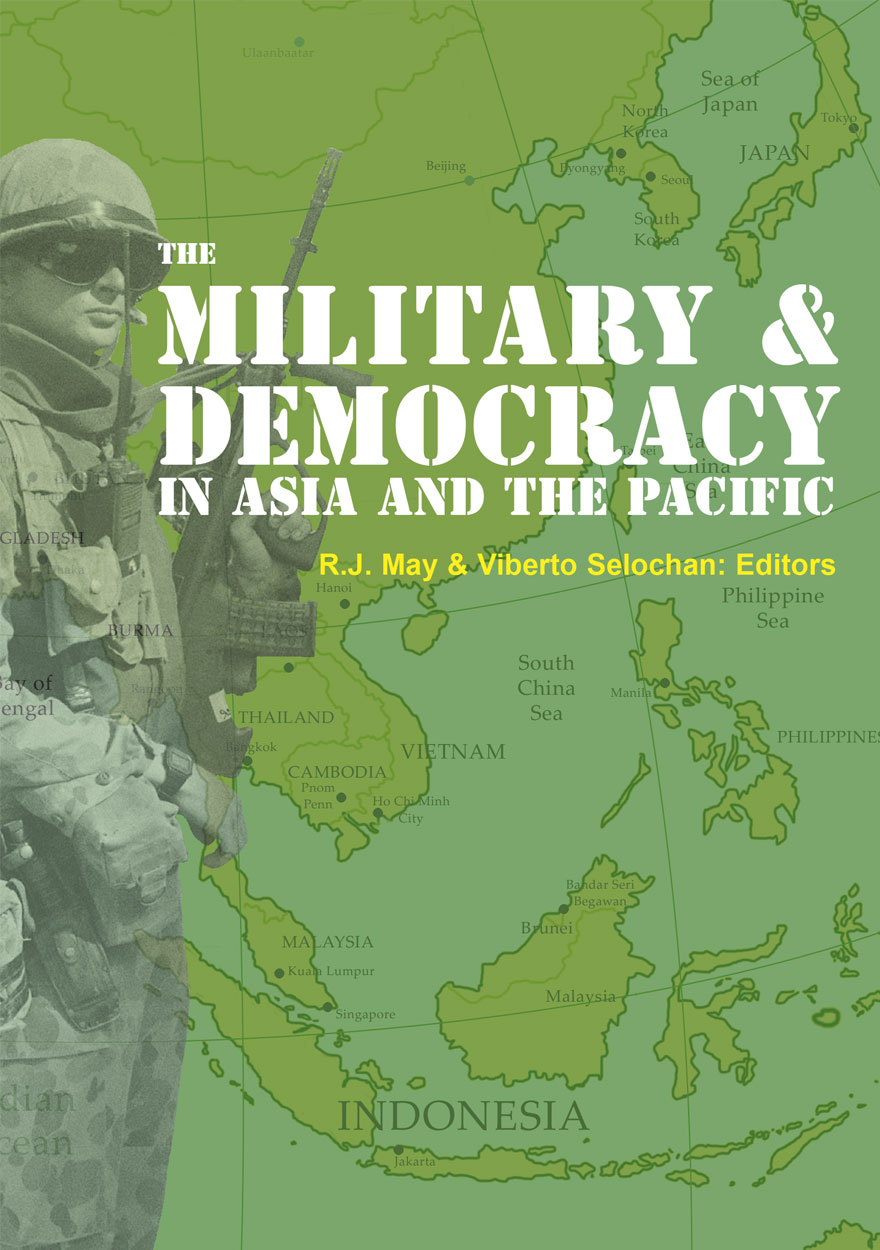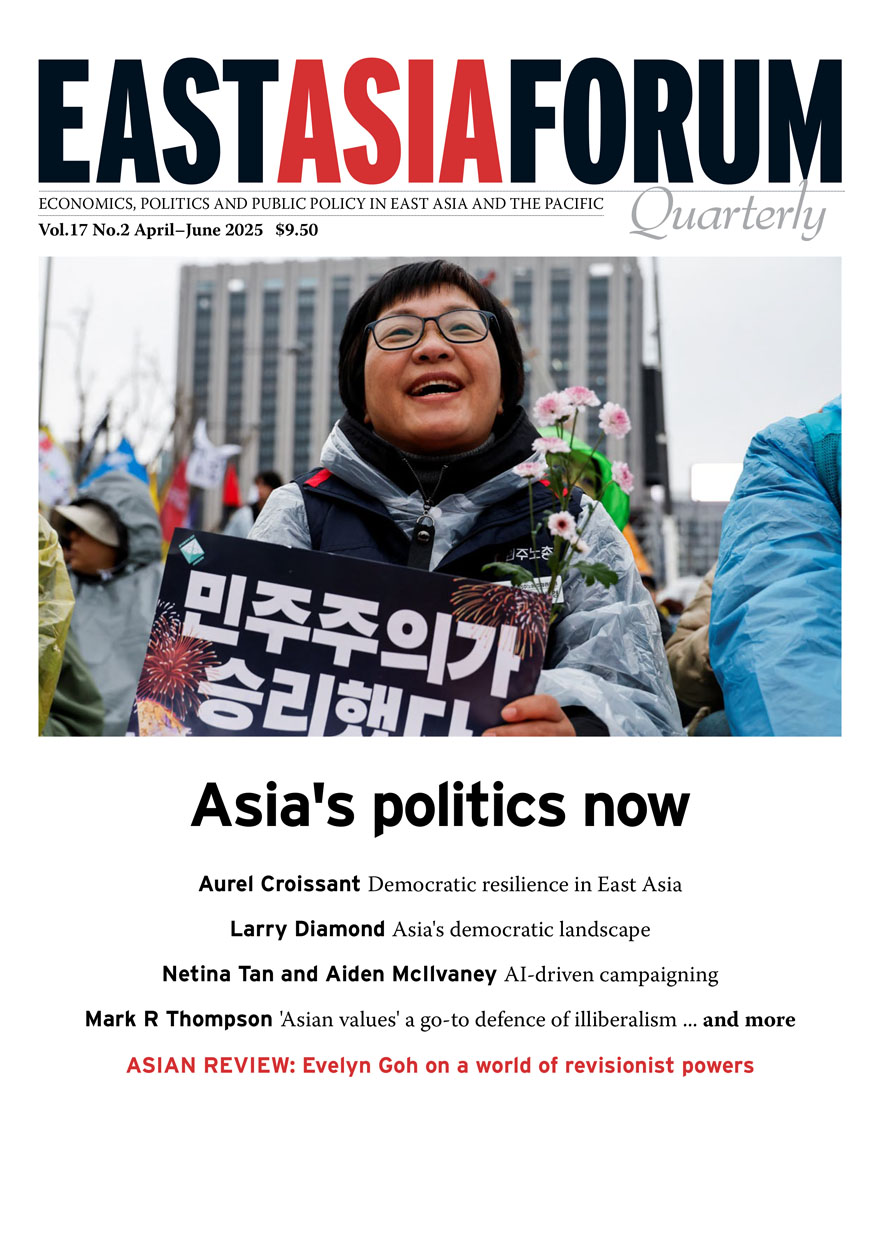Search
Books

Law and Democracy »
Contemporary Questions
Edited by: Glenn Patmore, Kim Rubenstein
Publication date: December 2014
Law and Democracy: Contemporary Questions provides a fresh understanding of law’s regulation of Australian democracy. The book enriches public law scholarship, deepening and challenging the current conceptions of law’s regulation of popular participation and legal representation. The book raises and addresses a number of contemporary questions about legal institutions, principles and practices:
How should the meaning of ‘the people’ in the Australian Constitution be defined by the High Court of Australia?
How do developing judicial conceptions of democracy define citizenship?
What is the legal right to participate in the political community?
Should political advisors to Ministers be subject to legal accountability mechanisms?
What challenges do applied law schemes pose to notions of responsible government and how can they be best addressed?
How can the study of the ritual of electoral politics in Australia and other common law countries supplement the standard account of democracy?
How might the ritual of the pledge of Australian citizenship limit or enhance democratic participation?
What is the conflict between legal restrictions of freedom of expression and democracy, and the role of social media?
Examining the regulation of democracy, this book scrutinises the assumptions and scope of constitutional democracy and enhances our understanding of the frontiers of accountability and responsible government. In addition, key issues of law, culture and democracy are revealed in their socio-legal context.
The book brings together emerging and established scholars and practitioners with expertise in public law. It will be of interest to those studying law, politics, cultural studies and contemporary history.

The Military and Democracy in Asia and the Pacific »
Edited by: R.J. May, Viberto Selochan
Publication date: March 2004
In The Military and Democracy in Asia and the Pacific, a number of prominent regional specialists take a fresh look at the military’s changing role in selected countries of Asia and the Pacific, particularly with regard to the countries’ performance against criteria of democratic government.
Indonesia, Thailand, the Philippines, Burma, Pakistan, Bangladesh, South Korea, Fiji and Papua New Guinea all fall under the spotlight as the authors examine the role which the military has played in bringing about changes of political regime, and in resisting pressures for change.
Under the auspices of The Australian National University’s Department of Political and Social Change, Research School of Pacific and Asian Studies, and within the context of the Regime Change and Regime Maintenance in Asia and the Pacific project, the following contributors compiled The Military and Democracy in Asia and the Pacific: Emajuddin Ahamed, Suchit Bunbongkarn, Stephanie Lawson, R. J. May, Hasan-Askari Rizvi, Viberto Selochan, Josef Silverstein, Michael Vatikiotis and Yung Myung Kim. The Military and Democracy in Asia and the Pacific provides a sequel to Viberto Selochan’s earlier collection, The Military, the State, and Development in Asia and the Pacific (1991).

Japan at War and Peace »
Shidehara Kijūrō and the Making of Modern Diplomacy
Authored by: Ryuji Hattori
Publication date: December 2021
The question of how to maintain the continuity of diplomacy while developing democracy without military intervention is an old and new issue. The challenge can be described as a dilemma between democracy and diplomatic coherence. This dilemma is not unique to the twenty-first century; it has been a constant challenge to the development of democracy. In non-Western countries, democratisation originated in the nineteenth century and has had many successes and failures. After the Russo-Japanese War, political parties began to take power in Japan.
The best embodiment of diplomacy in Japan’s emerging democracy—the development of parliamentary democracy and mass-based democracy—is Shidehara Kijūrō (1872–1951), who served as foreign minister from 1924 to 1927 and from 1929 to 1931, and was prime minister from 1945 to 1946. As a diplomat from the Ministry of Foreign Affairs, Shidehara had long grappled with the issue of how to ensure diplomatic coherence in modern Japan, which was becoming increasingly democratic. Although Shidehara succeeded to some extent in promoting diplomacy in cooperation with the US and the UK under party politics, the rise of the military after the Manchurian Incident forced him to retire for a period. However, after the Pacific War, Shidehara became prime minister of the US-occupied Japan and attempted to restore cooperative diplomacy under party politics. Shidehara came to the conclusion that the way to achieve both democracy and diplomatic coherence was through nonpartisan diplomacy towards peace.
This book examines the tension between diplomacy and democracy, focusing on Shidehara’s life and exploring modern Japan’s footsteps. Shidehara was undoubtedly one of Japan’s most important diplomatic figures.
Journals

Made in China Journal: Volume 6, Issue 3, 2021 »
Edited by: Ivan Franceschini, Nicholas Loubere, Shui-yin Sharon Yam
Publication date: March 2022
In 2019 and 2020, Hongkongers witnessed—and, in many cases, participated in—one of largest and most exacting grassroots movements in the city’s history. Triggered by a proposed Extradition Bill and fuelled by a decades-long struggle for democracy and political freedom, the decentralised protest quickly seeped into the city’s everyday life. While some of the protestors confronted the police in black blocs, others participated in strikes, sit-ins, and economic boycotts. To suppress the movement, the Hong Kong police deployed an alarming use of force and violence. To put an end to the movement once and for all, in June 2020 the Chinese and Hong Kong government abruptly implemented the National Security Law (NSL), effectively rendering any expressions of dissent seditious and illegal. Since then, prominent pro-democracy activists and politicians have either gone into exile or have been imprisoned under the NSL; books penned by activists have been removed from the shelves of public libraries; key historical events and political concepts have been censored from textbooks; and around 60 advocacy groups and independent media outlets were forced to disband. Given the chilling effect of the NSL, many Hongkongers have chosen to emigrate. Amid this ongoing crackdown, this issue of the Made in China Journal takes stock of the aftermath of the protest movement and reflects on the sociopolitical changes that are taking place in Hong Kong’s political and civil society in the post-NSL era.
Download for free
Not available for purchase

East Asia Forum Quarterly: Volume 17, Number 2, 2025 »
Publication date: May 2025
Asia is home to some of the world’s most diverse political systems—from liberal democracies to authoritarian regimes and hybrid states. As global democracy faces renewed pressure, this edition of East Asia Forum Quarterly explores how political systems across Asia are evolving amid rising autocratisation. It examines why economic development alone cannot explain democratic outcomes in the region and how authoritarian success stories are reshaping debates about governance. With ideological contestation intensifying, Asia is not just adapting to global political trends—it is helping to define them.
Download for free
Not available for purchase
Author / Editors
Roland Rich »
Roland Rich, an Australian national, is Executive Head of the United Nations Democracy Fund (UNDEF), a United Nations General Trust Fund, with the primary purpose of supporting democratisation around the world. It supports projects that strengthen the voice of civil society, promote human rights, and encourage the participation of all groups in democratic processes. Mr Rich is concurrently Officer-in-Charge of the United Nations Office for Partnerships (UNOP) which serves as a gateway for partnership opportunities with the UN family.
Mr Rich brings to the job over 30 years of experience as a diplomat, a scholar and a democracy promotion practitioner. Prior to his appointment to UNDEF, Mr Rich was at the Centre for Defence and Strategic Studies of the Australian Defence College, teaching and mentoring colonel-level officers undertaking a master’s degree in international relations. In 2005, Mr Rich was a research Fellow at the National Endowment for Democracy in Washington DC. Between 1998 and 2005, Mr Rich was the Director of the Centre for Democratic Institutions at The Australian National University which is Australia’s democracy promotion institute undertaking projects in the Asia-Pacific region. Mr Rich joined the Australian foreign service in 1975 and had postings in Paris, Rangoon, Manila and, from 1994-1997, as Australian Ambassador to Laos. He has also served as Legal Advisor and Assistant Secretary for International Organisations in the Australian Department of Foreign Affairs and Trade.
Mr Rich has contributed to the scholarly literature on democracy and democracy promotion. In 2004, together with Edward Newman, he edited The UN Role in Promoting Democracy published by United Nations University Press which examined the areas of comparative advantage the UN had in this field. His most recent book, in 2007, is Pacific Asia in Quest of Democracy published by Lynne Rienner Publishers which surveys the current state of democratic consolidation among the countries along Asia’s Pacific Rim.
Jan Pakulski »
Jan Pakulski, MA (Warsaw), PhD (ANU), is Professor of Sociology at the University of Tasmania, Hobart, Australia, Fellow of the Academy of the Social Sciences in Australia, and Fellow at the Stanford Center on Poverty and Inequality. Migrated to Australia in 1975; 1998-2001 Head of School of Sociology and SW, UTAS; 2001-8 Dean of Arts, UTAS. He is the author, co-author or editor 8 books and over 100 scholarly articles on elites, democratization, multiculturalism, post-communism, social movements, and social inequality. His books include Elite Recruitment in Australia (Canberra: ANU Press, 1982), Social Movements: The Politics of Moral Protest, (Melbourne: Longman Cheshire 1991); Postmodernization with S. Crook and M. Waters (London: Sage 1992, Chinese translation 1994); The Death of Class, with M. Waters (London: Sage 1996); Postcommunist Elites and Democracy in Eastern Europe with J.Higley and W.Wesolowski (London: Macmillan 1998); Ebbing of the Green Tide? Environmentalism, Public Opinion and the Media in Australia (Hobart: University of Tasmania, 1998); Globalizing Inequalities (Sydney: Allen and Unwin, 200); Toward Leader Democracy (New York and London: Anthem Press, 2012). Co-winner of Henry Mayer Prize for the best political science article published in Australia (1999) and winner of the Stephen Crook Memorial Prize for the Best Authored Book in Australian Sociology 2004-5 (Globalising Inequalities).
Glenn Patmore »
Glenn Patmore is a Senior Lecturer at the University of Melbourne Law School, where he teaches courses in law and democracy and constitutional law. He has degrees from Monash University and Queens University (Canada). He is a member of the Center for Comparative Constitutional Studies.
Other
Top 10 downloaded books in 2018 »
Readers couldn’t get enough of ANU Press books in 2018: we had a record-breaking 3.17 million downloads of our titles. Below were our top 10 downloaded titles: The Military and Democracy in Asia and the Pacific (60,441 total downloads) The Personality Cult of Stalin in Soviet Posters, 1929–1953 (42
Meet the Author: Katharine Massam »
Associate Professor Katharine Massam is the Research Co-ordinator at Pilgrim Theological College, University of Divinity. Katharine’s research explores intersections between Christian tradition and wider culture in postcolonial settler societies, including Australia. Katharine’s latest title, A
Successful applicants »
ANU Press would like to congratulate the following applicants: Publication Subsidy Fund – Round Three, 2022 Name of applicant Book title Publication notes Wally Johnson Return to Volcano Town Published by ANU Press Julien Louys Quaternary Palaeontology and Archaeology of Sumatra Published by ANU



